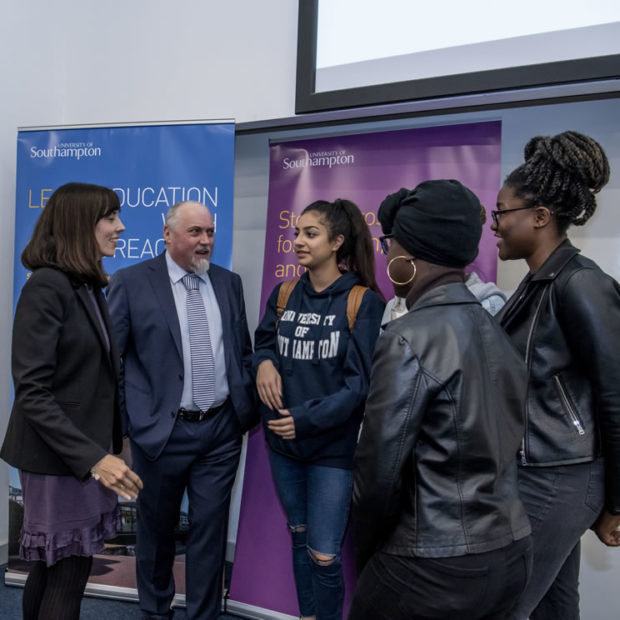Hartley News Online Your alumni and supporter magazine
Dr Graham Baxendale, Senior Tutor in Sociology, Social Policy and Criminology, is going above and beyond to improve mental health support available to our students. His hard work and dedication in this area saw him receive a Vice-Chancellor’s Award for Student Experience in 2018, as nominated by colleagues across the University.
Southampton Connects Staff talks to Graham about the importance of mental wellbeing within the student community, the work he is doing to provide and improve support, and how others can offer help to our students when they need it the most.
Alongside his day-to-day teaching role, Graham is often the first port of call for distressed or concerned students as a Senior Tutor.
“When teaching, the greatest sense of achievement is to see a student achieve more than they thought they could,” he says.
“As a Senior Tutor this is even more true; seeing our graduates receive their degrees knowing how many obstacles they have had to conquer is awe-inspiring.”
His passion for offering help and advice started early in his career. While studying for his PhD here at Southampton, Graham worked as both a carer and a warden, which allowed him to see the opportunities for greater levels of care and support within a large organisation.
“Almost all of us will experience periods of poor mental wellbeing, and even the most fortunate will experience bereavement or relationship breakdowns. Our students are encountering these difficulties and many others when living away from home for the first time, and with the additional pressures of studying at a top university and the stresses and anxieties this may create.
“Separated from their usual support networks, they need additional help from us.”
Graham is working to increase the knowledge and awareness of the various support systems that our University already has in place, among both staff and students. Support from personal tutors, enabling services, and student offices, for example, all play a critical and essential role in providing key support for students.
Within his department, he has also established a mental wellbeing forum, giving students the opportunity to meet with himself and members of the student experience team, as well as other students. The forum meets regularly to give students the opportunity to express any concerns, as well as allowing staff to learn about the issues that students are experiencing.
While there are useful, practical resources and ideas shared during these forums, Graham recognises that the most valuable outcome of these meetings is the peer support and networking that the students themselves have created as a result of the forum:
“Students meet others with similar concerns and know they aren’t alone. Some really great supportive friendships have resulted from this.”
One of his main driving forces is to normalise and destigmatise the discussion of mental wellbeing, allowing for open and honest discussions amongst students with their tutors and colleagues. This might be as simple as tutors asking students explicitly about their mental health in tutor meetings, without the stigma and anxiety that can come with speaking about the subject.
For Graham, as with many colleagues involved in student wellbeing, the greatest outcome of these conversations is to enable students to achieve their full potential whilst at university and beyond.
“Going into exam rooms before an exam and finding that the student I have spoken to the days before has been able to attend, and then later seeing how well they have usually done; these sorts of impacts on individual students are perhaps the most rewarding.”




